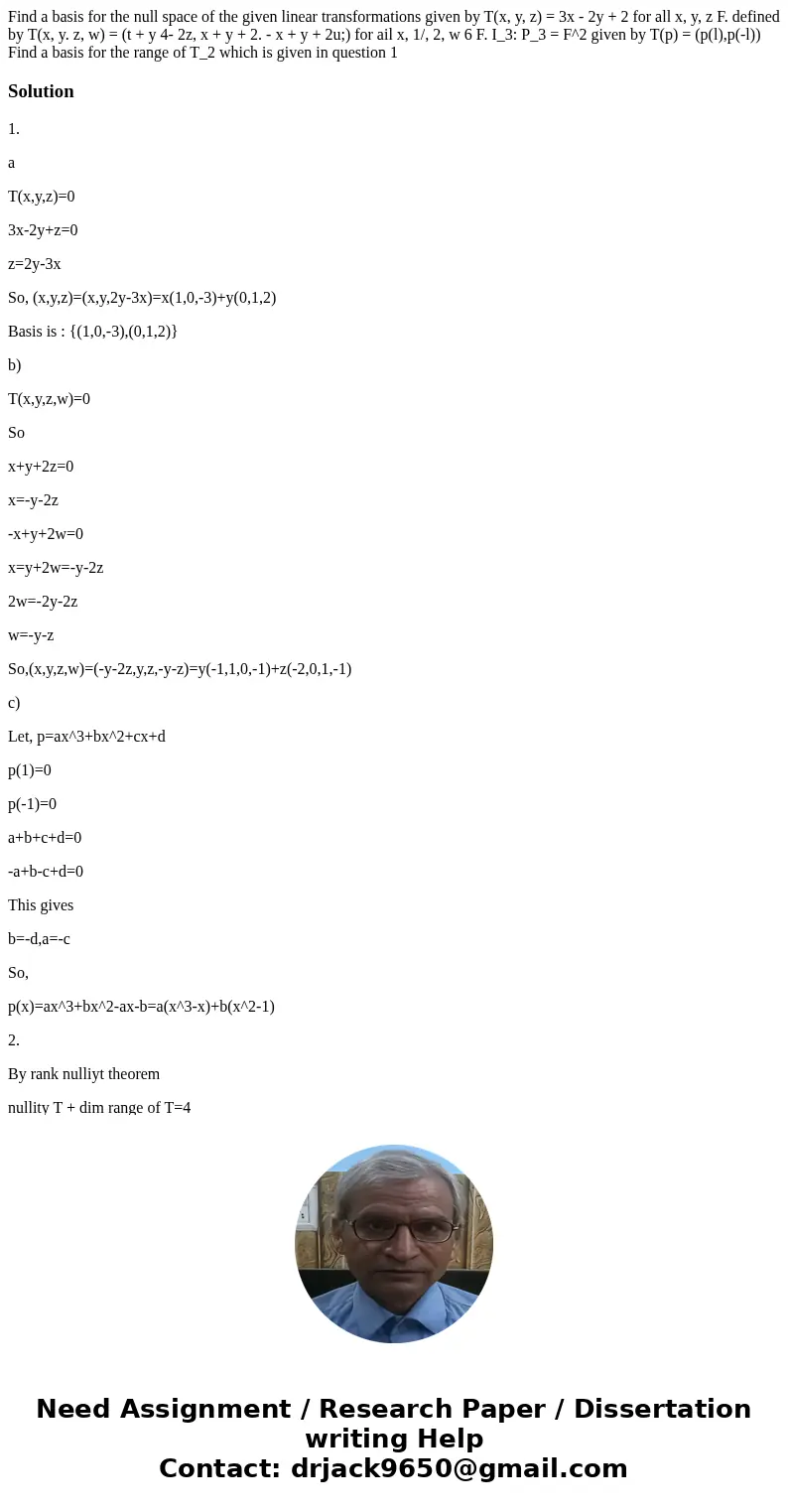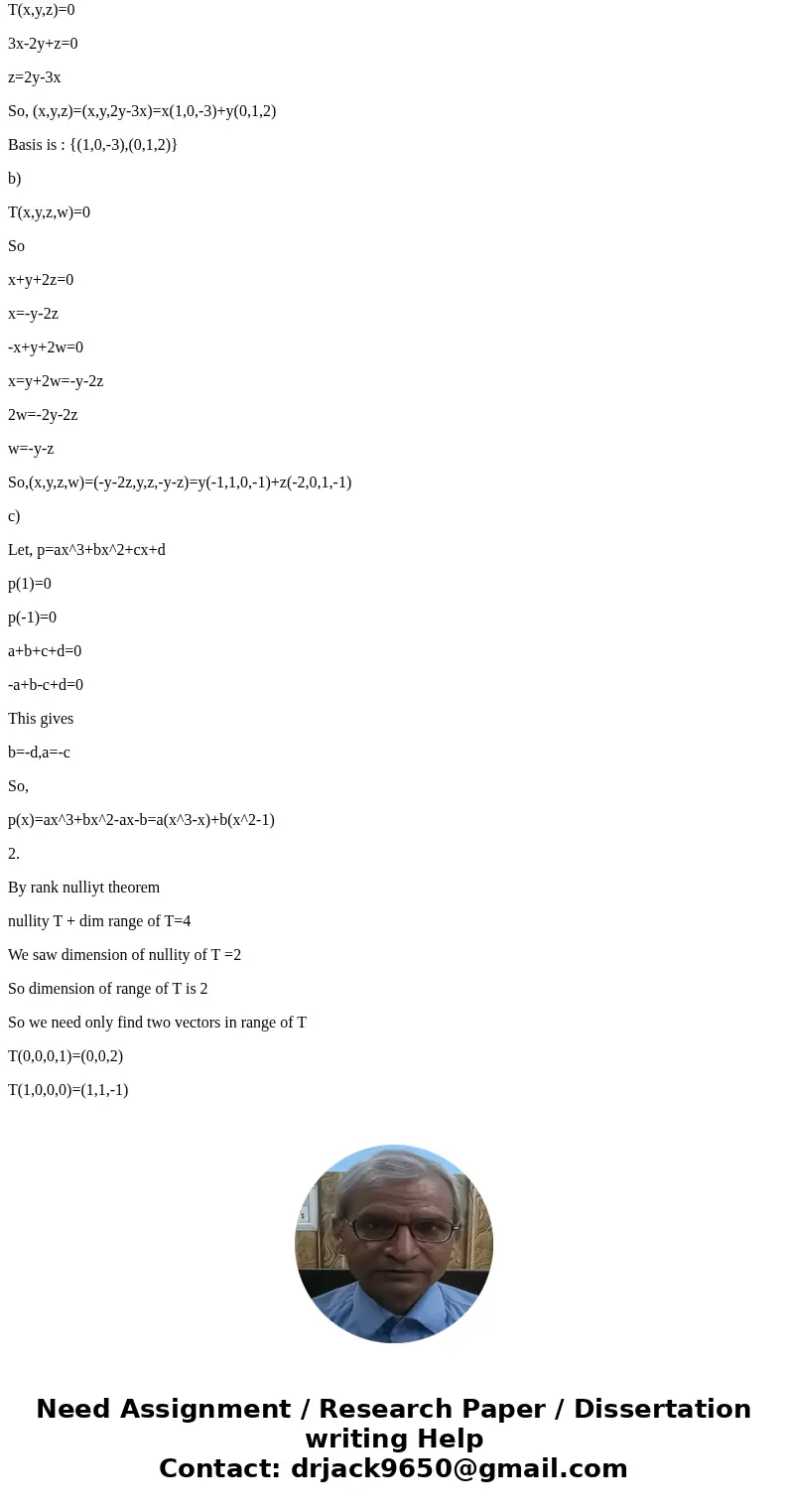Find a basis for the null space of the given linear transfor
Find a basis for the null space of the given linear transformations given by T(x, y, z) = 3x - 2y + 2 for all x, y, z F. defined by T(x, y. z, w) = (t + y 4- 2z, x + y + 2. - x + y + 2u;) for ail x, 1/, 2, w 6 F. I_3: P_3 = F^2 given by T(p) = (p(l),p(-l)) Find a basis for the range of T_2 which is given in question 1 

Solution
1.
a
T(x,y,z)=0
3x-2y+z=0
z=2y-3x
So, (x,y,z)=(x,y,2y-3x)=x(1,0,-3)+y(0,1,2)
Basis is : {(1,0,-3),(0,1,2)}
b)
T(x,y,z,w)=0
So
x+y+2z=0
x=-y-2z
-x+y+2w=0
x=y+2w=-y-2z
2w=-2y-2z
w=-y-z
So,(x,y,z,w)=(-y-2z,y,z,-y-z)=y(-1,1,0,-1)+z(-2,0,1,-1)
c)
Let, p=ax^3+bx^2+cx+d
p(1)=0
p(-1)=0
a+b+c+d=0
-a+b-c+d=0
This gives
b=-d,a=-c
So,
p(x)=ax^3+bx^2-ax-b=a(x^3-x)+b(x^2-1)
2.
By rank nulliyt theorem
nullity T + dim range of T=4
We saw dimension of nullity of T =2
So dimension of range of T is 2
So we need only find two vectors in range of T
T(0,0,0,1)=(0,0,2)
T(1,0,0,0)=(1,1,-1)


 Homework Sourse
Homework Sourse